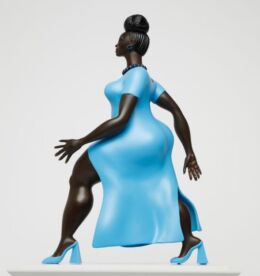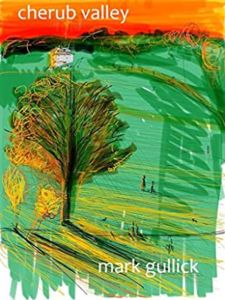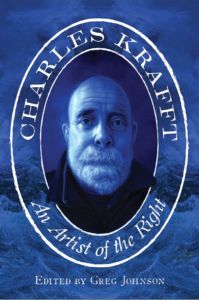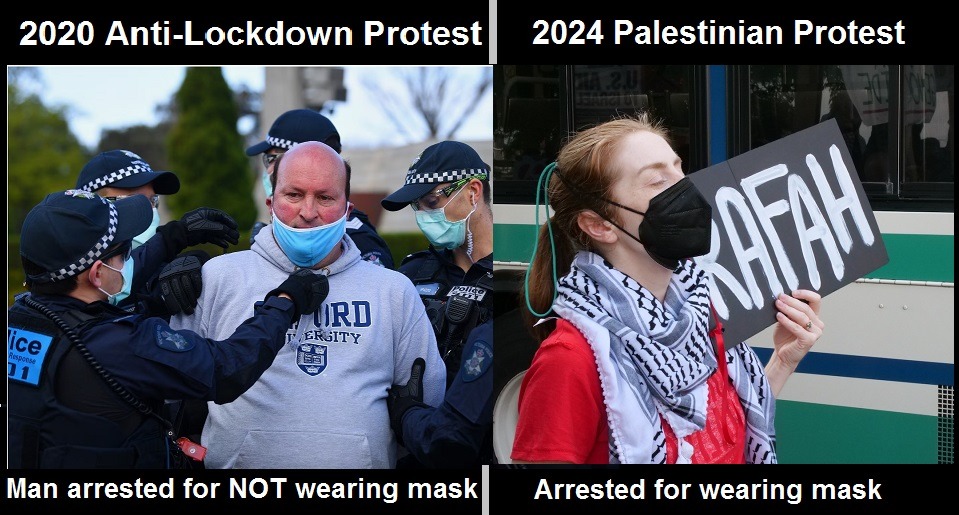The Union Jackal, April 2024

Tschabalala Self’s Lady in Blue, coming soon to Trafalgar Square. (Image from Ewan C. Forbes on Twitter/X)
2,116 words
New Model Irish Citizen Army
Éire may not seem the concern of the Union Jackal, but we would all like to see a united Ireland, one country without borders and troubles. Unfortunately, Ireland already has no effective border with her sister to the north, and its troubles are due neither to the British nor the Irish Republican Army, but self-willed via its importation of the Third World. Many of the immigrants who come ashore on England’s Kent coast use the country merely as a travelator to get them to Northern Ireland. From there, they simply stroll over an unmanned border and back into Europe, Ireland being a member of the European Union. British Prime Minister Rishi Sunak claims that this shows that the deterrent effect of his “Rwanda scheme” is taking effect, and the Irish government blame the English for problems they themselves created — always a safe default option. A diplomatic row is brewing as the British government refuses to take back any immigrants who have made it to the Emerald Isle on the perfectly reasonable grounds that the French won’t do the same for them, and they are also in Europe.
Once those migrants have made it to Ireland, the same shenanigans are taking place as seen in England, with hordes of fighting-age men being placed in accommodation — known to the locals as “plantations” — in unspoiled rural areas. But these outposts still have old-fashioned traditions such as a sense of community, as the Irish state is discovering and responding to.
The locals of Newtonmountkennedy [sic] in County Wicklow are not the first disgruntled Irish folk to take to the streets and lanes in opposition to planned migrant centers, but they are the first to be met with riot police. Batons, pepper spray, and riot shields were deployed against concerned and unarmed citizens, and there are rumors that water cannons have been brought in from England, which won’t help calm matters. The Irish police, the Gardaí, would do well to recall that the Irish Citizen Army which began in Dublin in 1913 and went on to take part in the historical Easter Rising of 1916 was formed as a direct response to police brutality.

You can buy Mark Gullick’s novel Cherub Valley here.
Nowadays this heavy-handedness has another name; “two-tier policing.” It has been apparent in London for some time, as the same Metropolitan Police Force whose officers knelt before blacks in 2022, and who regularly allow pro-Palestine supporters to flout the law with impunity, have a different policy when dealing with the white English.
It has become a tired cliché that the English are the only home nation whose people are actively discouraged from celebrating its patron saint on St. George’s Day, April 23, but it is unquestionably true. This forbidding of national fervor has gone up a gear from just banning taxi drivers from having the Cross of St. George in their cars to mounted riot police provoking small groups of Englishmen, however. It may be that the police wanted to make a point after their nemesis Tommy Robinson had a case against him thrown out in the High Court on the morning of that red-letter day in the English calendar, and if so, they can consider it made.
A small group of revelers decked in crosses of St. George were attacked and “kettled,” or contained in a small area which they were unable to leave. Now, no one is saying that Britain has become a police state. Oh, wait. That’s the point. No one is saying it. Strictly speaking it is not a police state, as that would imply equal treatment for all. Britain is actually becoming a state which only polices whites. Is this all we get for our white privilege? Perhaps the Irish might be about to ask for a little more.
Study in black
A major objective of Britain’s black caucus is the despoliation of whiteness, and the diminishment of white British culture has an element of enthusiastic vandalism about it. The cry of the decadent Parisian artists of the late nineteenth century, épater les bourgeois, has become épater les blancs in modern-day London. If you can’t destroy the white man’s monuments, strive to make them look ridiculous.
Trafalgar Square and Nelson’s Column are famous London landmarks, and Nelson is guarded by four great bronze lions. There also four plinths, three of which contain historical busts of various British commanding officers. The fourth plinth was opened up to provide a space for public artwork, which doesn’t sound like a bad idea at all. There was a large and very droll replica of Nelson’s ship there for a while in 2010, which was an improvement on the large statue of a pregnant thalidomide woman which had previously beguiled Londoners and tourists alike. Since then we have had a succession of pieces purely installed pour épater les blancs. Currently making us all think a bit about colonialism is this piece of work, intended to reveal “the hidden narratives of underrepresented peoples in the history of the British Empire in Africa.” It is a healthy sign that contemporary art is addressing the problem of colonialism, because we really don’t hear enough about it. London Mayor Sadiq Khan vetoed a proposed statue of Britain’s late Queen and opted for a montage of trans people, most of whom are or were “sex workers,” to be next on the plinth. The installation will be allowed to deteriorate in the rain, so take an umbrella if you wish to witness this phenomenon in action.
The next design planned is for 2026, and it is claimed by the artist that it represents “the spirit of London.” The work, Lady in Blue, is of a fat black woman rendered in a cartoonish style, but this is not the place for art appreciation. The artist is named Tschabalala (which reads inescapably like an anagram) Self (which is effectively the surname of every British black).
The artist was born in New York, and has the following to say about her sculpture:
My work Lady in Blue will bring to Trafalgar Square a woman that many can relate to. She is not an idol to venerate or a historic figure to commemorate. She is a woman striding forward into our collective future with ambition and purpose.
We do not need to be art historians to be aware that art and the geography of its placement carries a message for the viewer, and so does Lady in Blue. This may look like art for black people, who otherwise show little interest in London’s many galleries, but it is not. This is very much art for white people to look at. Hmmm. Perhaps we might prefer a night at the theater.
Apartheid theater
London is theaterland, and the adopted home of the Swan of Avon has a rich theatrical tradition anyone can enjoy. Oh, wait. This just in: While this is prime time to be treading the boards if you are a black actor, it seems the audience representing one particular ethnicity is not having such a great time enjoying the smell of the greasepaint and the roar of the crowd. That’s right, there are just too many whites going to the theater, and so like skiing, milk, and the countryside, theater has a racism problem. Fortunately, thespian help is at hand.

You can buy Charles Krafft’s An Artist of the Right here.
Jeremy O. Harris is an American playwright who doesn’t just pen the hits, but also invented something called “Black-out nights” in 2019 for his triptych Slave Play (don’t ask what it’s about, as it spoils the surprise). These are performances which are intended for black-only audiences, although Mr. Harris is big-hearted, declaring that “he feels it’s fine for Black [sic]attendees to bring along non-Black [sic] friends and partners.” So that’s all right, then — and doesn’t it sound like a cracking night out?
London saw its first “Black-out night” last year when Tambo & Bones premiered in east London. Director Matthew Xia had noted developments across the herring pond and decided it was time London had some nights where only blacks were encouraged to attend:
I felt that with a play like Tambo & Bones, which unpicks the complexity of Black performance in relation to the white [sic] gaze, it was imperative that we created such a space.
This “white gaze” comes up often enough in conversation around this theatrical apartheid that one wonders what it might be. Do we stare rudely at black people? Frankly, I rather doubt that, so it must just be unnerving to have us around, gazing away in our white, privileged way. Left-wing newspaper The Independent offers clues as to why whites in the audience might spoil the black theatrical experience:
Marginalised people need to have environments to experience art together, free from the fear of potential microaggressions or ignorant misunderstandings.
Any whites reading this who may have had the pleasure of watching a movie with blacks in the audience may have wished for a similar environment for their artistic experience, but it is good to know that black people can enjoy the theater without being frightened.
The blackwashing of theater — at least theater which white people are still allowed to watch whenever it suits them rather than only on colored nights — continues apace. It is not easy to think of a “whiter” play or playwright than Oscar Wilde’s The Importance of Being Earnest, but as this promotional photo shows that 40% of the cast are black, including the leads, it has become the latest piece of white tradition to try blackface.
Those whites who fuss and fidget with British culture in order to downplay its whiteness cannot accept that blacks do not tend to visit the theater, or art galleries, or museums not because of the dreaded presence of whites and their powerful and malign gaze, but because they don’t want to. Black casts, black-themed plays, and blacks-only nights are not going to suddenly inspire a whole ethnic slice of people to rush to the theater because they don’t particularly care for it. If blacks don’t wish to take part in what are predominantly white rituals, it might be a sign of the volition liberals routinely deny them.
Now, if you’ll excuse me, my whiteness demands that I go off and have a bit of a gaze.
Scots free
This was going to be a piece on how Scottish First Minister Humza Yousaf was the perfect example of a politician “failing upwards” when the man himself quit on me before I had finished the first sentence. After trying desperately to cling on to power, and less than a month after his notorious Hate Crimes Bill was passed into law, Yousaf avoided the firing squad by taking his trusty service revolver and a glass of scotch into the drawing room and closing the door. A vote of no confidence had already been proposed by the Scottish Parliament, and Yousaf knew he could not win it. His resignation speech was about his two favorite subjects, himself and race, and I am left lamenting the fact that I will never again have the chance to misspell his name.
Having had an inauspicious political career which included being stopped for driving without insurance when he was Transport Minister, Yousaf picked himself out of the rubble of the scandal-hit Scottish National Party and found himself leader, and thus First Minister of Scotland. He did not endear himself to a Scottish public who had not voted for him (a thoroughly modern political scenario), and in fact seemed intent on making as many enemies as possible both inside and outside Holyrood, home of the devolved Scottish Parliament. His infamous speech bemoaning the fact that he was the only non-white Scot in a position of power taught us both a new way to pronounce the word “white,” and that 96% of Scottish people are that very color.
Whether or not his Hate Crimes Bill, which really was his pet project, was in fact a blasphemy law by any other name and intended to prevent criticism of Islam is debatable. What should be a matter of record is that Scotland’s outgoing First Minister was an egotistical despot who blamed non-whites for his failures but attributed his success to his racial origins. He was sworn in to his post on the Koran, and spoke in Urdu.
In the end, Yousaf is just another low-grade, narcissistic, failed politician. The Scots, like the Australians, the Canadians, the New Zealanders and a slew of other countries, are going to have to become politically engaged, at least in the form of going out and voting, or there will be a lot more of the same in the Highlands.
Courage, Bravehearts!
The Union Jackal.

